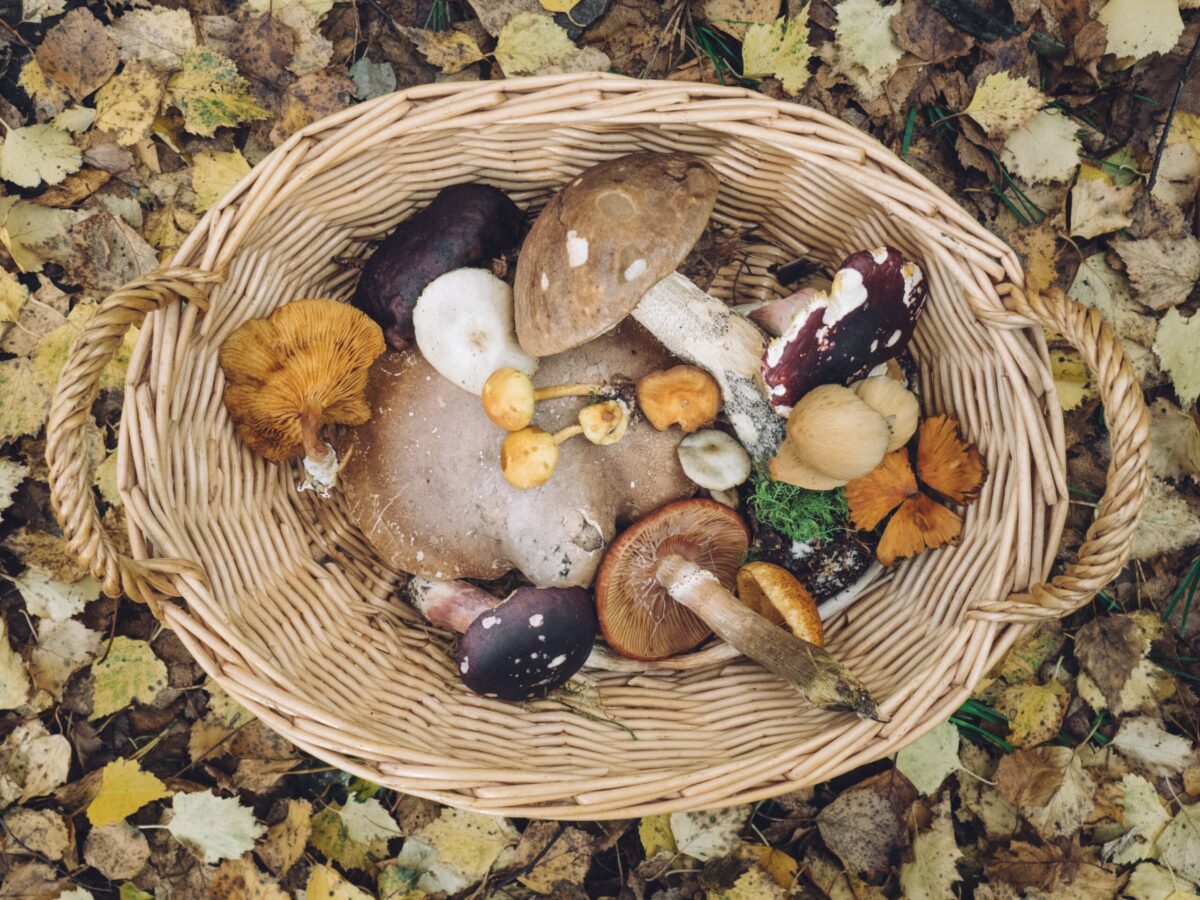Ever since Alexander Fleming discovered penicillin, a fungal extract, scientists have realized what ancient Asian culture always knew – mushrooms are medicine.
If you think mushrooms are just a way to add flavor to pizzas and stir-fries, then you’re missing the bigger picture. The medicinal use of mushrooms in Asian culture is one of the most well recognized use of this extraordinary plant. There’s a reason the mushroom is bearer of the title “MycoMedicinals” a unique class of natural products that includes all types of mushrooms and their extracts or powders.
So what is it about fungi that promotes healing?
Death to Cancer 3 Ways
Research has shown that medicinal fungi:
- Induces Apoptosis – the death of cancer cells;
- Regulates Autophagy — the process by which a cell breaks down and destroys old, damaged, or abnormal proteins and other substances in its cytoplasm;
- Suppresses Angiogenesis — the development of new blood vessels that tumors need in order to grow and metastasize.
In addition, studies are underway to determine exactly how MycoMedicinals work to reverse multidrug resistance, one of the most significant causes of [traditional] cancer treatment failure today.
Turbo Boost Your Immune System
Mushrooms contain zero cholesterol, are low in fat, sugar, sodium, and calories, and are gluten-free, but if those are all the health benefits you think they possess, then you’re selling them short.
Oxidative stress is considered the main culprit in the deadly trio chronic diseases of aging: cancer, heart disease, and dementia. The body’s best defense against these destructive diseases — antioxidants — are known to decline during aging. And while the human body produces some antioxidants internally, it largely relies on those antioxidants obtained from the food we eat.
Mushrooms, in general, contain four key nutrients, each of which function as powerful disease-fighting antioxidants that have the uncanny ability to boost your body’s immune system just when you need them most:
- Ergo (Ergothioneine) – this amino acid, a building block of proteins, is produced in nature primarily by fungi. We humans cannot make ergo, but instead may obtain it from foods we eat. Chinese researchers analyzed seven different studies and determined that each gram of mushrooms (1 gram equals a mere ¼ teaspoon) reduces breast cancer risk by several percent.
- Glutathione – mushrooms are considered a rich source of glutathione, what some call the mother of all antioxidants. “Like a resident handyman, glutathione can repair any free radical damage on the spot as well as clean up any toxins and the injury they cause.” (Ann Louise Gittleman, The Most Powerful Antioxidant on the Planet Is Really A Hormone)
- Selenium – helps reduce oxidative stress by neutralizing excess free radicals and protecting cellular damage caused by oxidative stress.
- Vitamin D – key to numerous health benefits, including its ability to champion the immune system and build better bones, vitamin D also protects against certain cancers. (Read more about Vitamin D: The Pac-Man of Viruses, Bacterial Infections, and Cancer Cells)
Does It Matter What Type of Mushrooms You Eat?
You’ll find more than 100 types of mushrooms used to treat cancer in Asia. Porcini mushrooms have the highest concentrations of both ergo and glutathione among thirteen species tested (XME Science). Yellow oyster mushrooms also have a significant amount of ergo. And researchers have discovered that Shiitake, Maitake, and Oyster mushrooms have higher amounts of ergo than do the more common white button, cremini, and portabello mushrooms.
Turkey Tail mushrooms are also one of the 100 types of commonly used varieties in Asia that have been used for centuries as medicinal mushrooms. Studies indicate that these mushrooms contain a compound known as polysaccharopeptide (PSP) that inhibits the growth of cancer cells.
The Reishi mushroom has a reputation of being the mushroom associated with longevity. They are the most widely used mushrooms for both cancer prevention and slowing tumor growth.
Shiitake mushrooms contain lentinan, an active ingredient that has been approved in Japan as a biological response modifier for the treatment of gastric cancer.
Maitake mushrooms have been shown to have the highest levels of glutathione.
Cremini mushrooms are known to help prevent breast cancer. The aromatase inhibitors these ‘shrooms contain block aromatase, an enzyme that promotes the creation of estrogen.
But what about your favorite white button mushrooms that are commonly found in most any grocery store? You’ll be glad to know that these popular mushrooms are being studied to determine exactly how they slow the progression of prostate cancer.
You can’t go wrong in adding any variety of edible mushrooms into your diet. Research shows eating just two mushrooms a day could lower cancer risk by 45 percent! So the next time you make a salad, omelette, stir-fry, home-made pizza or almost any of your favorite dishes, do yourself a favor and throw on some mushrooms, too.
Learn More:
Get my FREE GUIDE to The 10 Things I Do Every Day to Stay Cancer Free.

References:
Dai Rongchen, Liu Mengfan, Wan Najbah Nik Nabil, Xi Ahichao, Xu Hongxi, “Mycomedicine: A Unique Class of Natural Products with Potent Anti-tumour Bioactivities,” Molecules (February 2021); 26(4): 1113.
Andrew R. Werner, Robert B. Beelman, “Growing High-Selenium Edible and Medicinal Button Mushrooms (Agaricus bisporus (J. Lge) Imbach) as Ingredients for Functional Foods or Dietary Supplements,” International Journal of Medicinal Mushrooms (2002); Vol 4, Issue 2. DOI: 10.1615/IntJMedMushr.v4.i2.100.
Jerzy Falandysz, “Selenium in Edible Mushrooms,” Journal of Environmental Science and Health (Jul-Sep 2008);26(3):256-99. doi: 10.1080/10590500802350086.
Penn State Peer Reviewed Publication, “Higher mushroom consumption is associated with a lower risk of cancer,” News Release (April 21, 2021). https://www.eurekalert.org/news-releases/680215.
Robert Beelman, Ph.D, Pennsylvania State University, “Mushrooms are Disease-Fighting Stars,” Blue Zones.
Michael D. Kalaras, John P. Richie, Ana Calcagnotto, Robert B. Beelman, “Mushrooms: A rich source of the antioxidants ergothioneine and glutathione,” Food Chemistry (October 15, 2017);233:429-433. doi: 10.1016/j.foodchem.2017.04.109.
D.M. Ba, X. Gao, J. Muscat, et al., “Association of mushroom consumption with all-cause and cause-specific mortality among American adults: prospective cohort study findings from NHANES III,” Nutrition Journal (April 2021); 20: 38. doi: 10.1186/s12937-021-00691-8.
B.D. Paul and S.H. Snyder, “The unusual amino acid l-ergothioneine is a physiologic cytoprotectant,” Cell Death & Differentiation (July 2010); 17(7): 1134–1140.
Kenji Ina, Takae Kataoka, Takafumi Ando, “The use of lentinan for treating gastric cancer,” Anticancer Agents Med Chem (June 2013)13(5):681-8. doi: 10.2174/1871520611313050002.
Pradipta Jana, Krishnendu Acharya, “Mushroom: A New Resource for Anti-Angiogenic Therapeutics,” Food Reviews International (2022); 38:1, 88-109, DOI: 10.1080/87559129.2020.1721529.
Lisa Marie Conklin, “5 Reasons to Consider Chaga Mushrooms,” American Association of Naturopathic Physicians (May 13, 2021).
“White button mushrooms could slow progression of prostate cancer,” Press Release: Endocrine Society (March 20, 2021).

